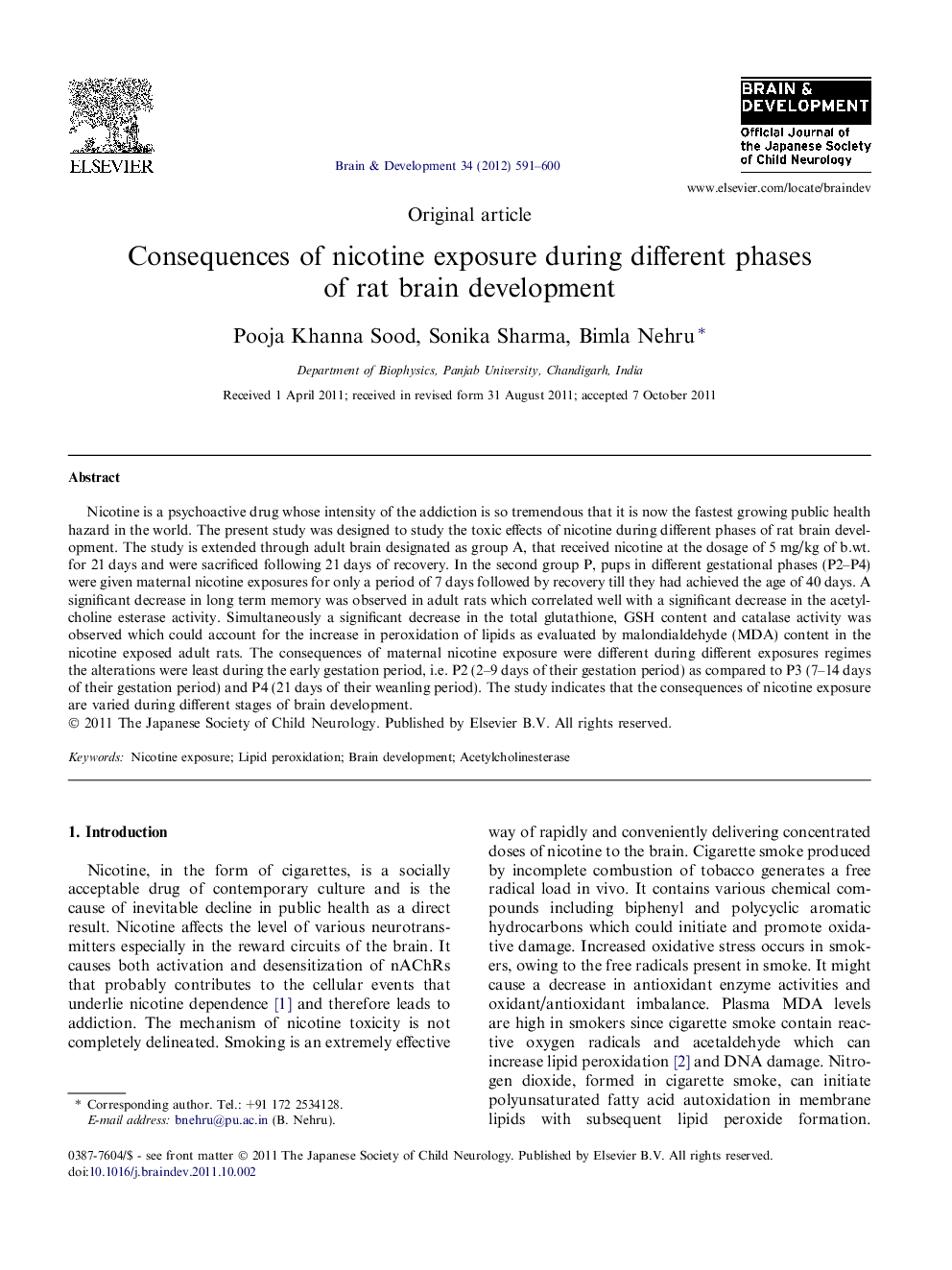| Article ID | Journal | Published Year | Pages | File Type |
|---|---|---|---|---|
| 3037544 | Brain and Development | 2012 | 10 Pages |
Nicotine is a psychoactive drug whose intensity of the addiction is so tremendous that it is now the fastest growing public health hazard in the world. The present study was designed to study the toxic effects of nicotine during different phases of rat brain development. The study is extended through adult brain designated as group A, that received nicotine at the dosage of 5 mg/kg of b.wt. for 21 days and were sacrificed following 21 days of recovery. In the second group P, pups in different gestational phases (P2–P4) were given maternal nicotine exposures for only a period of 7 days followed by recovery till they had achieved the age of 40 days. A significant decrease in long term memory was observed in adult rats which correlated well with a significant decrease in the acetylcholine esterase activity. Simultaneously a significant decrease in the total glutathione, GSH content and catalase activity was observed which could account for the increase in peroxidation of lipids as evaluated by malondialdehyde (MDA) content in the nicotine exposed adult rats. The consequences of maternal nicotine exposure were different during different exposures regimes the alterations were least during the early gestation period, i.e. P2 (2–9 days of their gestation period) as compared to P3 (7–14 days of their gestation period) and P4 (21 days of their weanling period). The study indicates that the consequences of nicotine exposure are varied during different stages of brain development.
